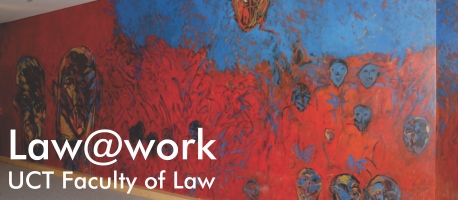
Gain a deep understanding of how animal cruelty is prosecuted within South Africa’s legal framework.
This course explores the Animals Protection Act and its interaction with the Criminal Procedure Act, including how cases are initiated, investigated, and tried. Learn how evidence is gathered, how charges are laid, and how cases are argued in court. The course also addresses legal loopholes, common challenges in enforcement, and current reform efforts to improve animal protection through strategic litigation and legislative change.
When and where?
5 to 7 October 2026, 9:00 to 11:00 SAST
This course will be held remotely, most likely on Zoom - exact details will be sent to registered participants a few days before the course.
Course outline
The following topics will be covered:
Foundations of Animal Protection in South African Law
- Overview of the Animal Protection Act: purpose and key provisions
- Brief history of animal protection legislation in SA
- Classification of offenses under the APA
- The role of animal cruelty laws in a rights-based legal system
Overview of the Criminal Procedure Act
- Purpose and scope of the CPA
- How the CPA governs all criminal prosecutions
- Key procedural stages: arrest, bail, trial, sentencing
- Importance of procedural fairness in animal cruelty cases
Initiating prosecution under the APA using the CPA
- Laying charges under the APA
- Who can initiate prosecution? (SPCA, NPA, SAPS)
- Role of section 20–21 of the CPA: search and seizure
- Use of section 57 for admission of guilt fines in minor offenses
- Importance of proper charge formulation (CPA compliance)
Evidentiary Considerations in Animal Cruelty Case
- Gathering admissible evidence: photos, vet reports, witness testimony
- Use of section 212 of the CPA for expert evidence (e.g. vets)
- Chain of custody and the handling of seized animals
- Protecting evidence of ongoing cruelty (urgent court orders, interdicts)
Trial Process & Courtroom Dynamics
- Applying CPA trial procedures to APA offenses
- Role of magistrates, prosecutors, and SPCA inspectors
- Presenting cases in lower courts (magistrates’ courts vs. regional courts)
- Sentencing guidelines and use of CPA section 297 (suspended sentences, conditions)
Common challenges an legal loopholes
- Inadequate training of prosecutors or police
- Abuse of CPA procedural rights (delays, technical defenses)
- Ambiguities in APA definitions (e.g. what constitutes “unnecessary suffering”)
- Need for bail conditions protecting animals or the public
Reform and strategic litigation
- Review of proposed legislative amendments to the APA
- Improving alignment between APA and CPA for efficiency
- Civil remedies and interdicts in parallel with criminal prosecution
Who will benefit from this course?
Legal professionals (attorneys and advocates), animal welfare professionals, and prosecutors
Presenter
Lisa V. Thomas, a former criminal defence advocate and professional legal assistant in Durban, has a wealth of experience in both private and public law practice. Lisa earned her LLB from the University of Kwazulu-Natal (Howard College Campus), completed her pupillage, and was admitted as an advocate/barrister in 2008. A passionate advocate for humanity and ethics in the South African legal profession, Lisa is especially committed to supporting entry-level legal professionals. Lisa shares her extensive legal expertise through LinkedIn teaching posts, a mentorship and career coaching platform, and her legal academy. She also provides ad-hoc litigation training for legal professionals and is a presenter with SA Legal Academy, where she developed their candidate attorney short course. Guided by empathy and authenticity, Lisa is devoted to being a lifelong resource for aspiring legal professionals.
How much?
R3,300 per person
Certificate
A digital certificate of attendance from UCT will be issued to those who attend the full course.
Please note that the digital certificate can only be viewed on a secure portal. It cannot be downloaded or printed. You will have the option of ordering a hard copy of the certificate at your own cost, including the cost of the courier fee. More information is available here.
No certificate will be issued without the full course fee having been received. Please allow up to three weeks after the end of the course for certificates to be processed.
How to sign up
Complete and submit the registration form. You will then be given the payment information. Please note that registrations will not be considered complete until payment has been made.
One or two days before the course, we will send you the Zoom link. You will need to register and use a password to access the course.
Registrations close three days before the course starts.
Download the brochure.
You may also be interested in:
- Animal Protection in South Africa: the Legal Framework
- The Animals Protection Act 71 of 1962: A deep dive into the legal tools for animal welfare in South Africa
- Pet Law in South Africa: A deep dive into rights, responsibilities & legal protections

